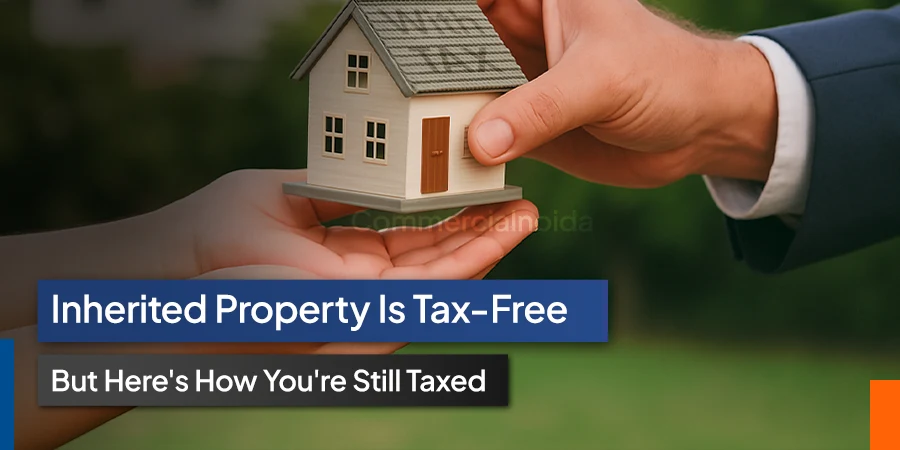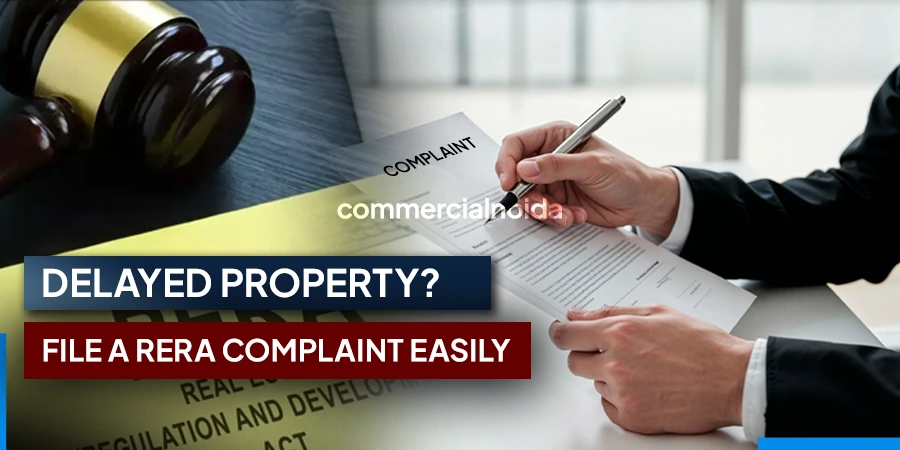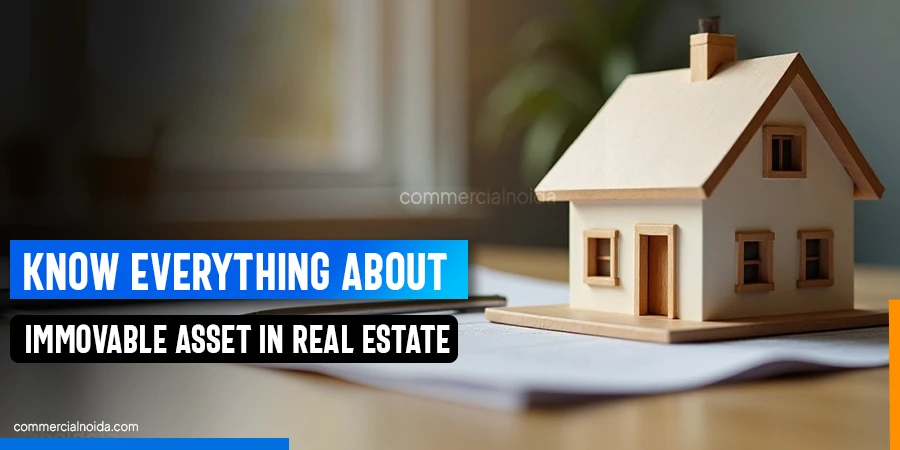GST On Property Sale: Calculation, Rates, And Updates (2024)

GST Rates for Property Sale (2024): Calculation and Latest Updates
In India, GST has always been a topic of discussion. The sole motive of GST was to make the taxation system uniform for every citizen in India . But still, it has some complexities that should be demystified, such as:
• How is GST calculated on real estate?
• What is the GST rate for residential property?
• What is the GST rate for commercial property?
• Which properties have lower GST rates?
Real estate involves high-value transactions, and every product in real estate has different GST rates. It makes the GST calculation hard for average property buyers. But today, in this blog, we will resolve all your queries regarding GST on real estate and will also talk about what is the GST rate for property sale?
.
GST On Real Estate: Background.
Before the implementation of GST in 2017, several taxes were levied on real estate, such as VAT, Service, Stamp Duty and Registration Charges. But now, these taxes on real estate are levied on under-construction properties excluding Vat and Service tax, because these are now under GST.
Before GST, there were two Taxes: for services, there was a ‘service tax’, and for Goods like anything such as Mobile, Vehicle, Computer, etc., a goods tax was levied. However, in 2017, the central government unified the taxation system and created a single tax system called the Goods and Services Tax (GST).
How is GST calculated on real estate?
Before calculating GST on Real Estate, You need to know about GST Rates On different real estate products, as you have to be aware of the following:
• What is the GST rate for residential property?
• What is the GST rate for commercial property?
GST rate on residential properties is 5 percent without Input Tax Credit (ITC). For residential properties that come under affordable housing schemes, it is 1 percent. GST on under construction commercial property is 12 percent. There is no GST on ready to move properties.
• What is an Affordable Residential Apartment?
An affordable residential apartment is defined based on certain criteria:
• Up to 60 square metres in metropolitan cities (like Delhi, Mumbai, Bengaluru).
• Up to 90 square metres in other cities and towns.
• The total cost charged by the builder should not exceed 45 lakh.
• How to Calculate the 45 Lakh Limit?
To determine if a project falls under affordable housing, the total cost should not exceed 45 lakh. Here’s how to calculate it:
Include the following charges:
• Preferential location charges
• Parking fees
• Development charges
• Common facility charges
Exclude the following:
• Stamp duty
• Maintenance charges
• Deposits for apartment maintenance
• Charges for maintaining common infrastructure
By adding up all the eligible costs and ensuring it stays within 45 lakh, you can check if a housing unit qualifies as affordable under GST.
There is an 18 percent GST rate applicable on other charges for both commercial and residential properties, such as:
• Brokerage Fees
• Legal Fees
• Parking Fees
• Club Membership Fees
• Electric Meter Installation Charges
• Water Connection Charges
• Maintenance Security
• External Development Charges (EDC)
• Internal Development Charges (IDC)
• Insurance
• Home Inspection Fees
• Loan Fees
• Appraisal Fees
• Survey Fees
• Closing Costs
What is the GST rate for property sale?
GST calculation on Residential and Commercial Real Estate are different. Their rates vary as per GST policies.
Residential Properties
Affordable Housing:
• GST Rate: 1% (without Input Tax Credit)
Example: If the base price of an affordable housing unit is 50 lakh, the GST would be 50,000 (1% of 50 lakh).
Non-Affordable Housing:
• GST Rate: 5% (without Input Tax Credit)
How to calculate GST on residential property?
Example: If the base price of a non-affordable housing unit is 50 lakh, the GST would be 2.5 lakh (5% of 50 lakh).
Commercial Properties
• Commercial Properties (Shops, Offices, etc.):
• GST Rate: 12% (without Input Tax Credit)
How to calculate gst on commercial property ?
If the base price of a commercial property is 1 crore, the GST would be 12 lakh (12% of 1 crore).
For the calculation of gst on other charges, just use the standard rate 18 percent as it has no exceptions and exemptions.
Latest Update: Supreme Court Verdict On ITC On Real Estate
On October 3, 2024, the Supreme Court of India ruled that real estate companies can claim Input Tax Credit (ITC) on construction costs for commercial buildings that are used for renting or leasing.
Conclusion
A 5 percent GST is applicable on under-construction residential properties; for under-construction commercial properties, it is 12 percent. No GST will be appropriate if the property is ready to move in and has received an occupancy certificate.
There will be a standard GST rate of 18 per cent on other charges for both commercial and residential, but only on under-construction properties. Knowing GST rates will help you calculate and negotiate prices better and budget for your new property.
Frequently Asked Questions On Gst On Real Estate
Is there any GST on real estate?
Yes, GST applies to Real Estate. For residential under construction residential and commercial, it is 5 and 12 percent. There is no GST on ready-to-move-in properties.
What is 12% GST on property?
On an under-construction commercial property, 12 percent GST is applicable.
What is the GST rate for residential property?
There is a 5 per cent GST applicable for under-construction residential property.
Who pays GST, the builder or the buyer?
The buyer pays the GST amount.
Is GST applicable on resale property?
There is no GST applicable on resale properties.
How can GST be avoided on under-construction property?
If the builder has obtained the Occupancy Certificate from the authority, GST will not be applicable.
Is there GST on flats below 45 lakhs?
There is only 1 percent GST applicable on properties below 45 lacs.



























































































































.webp)
































































































.webp)
















































































.webp)
































































































